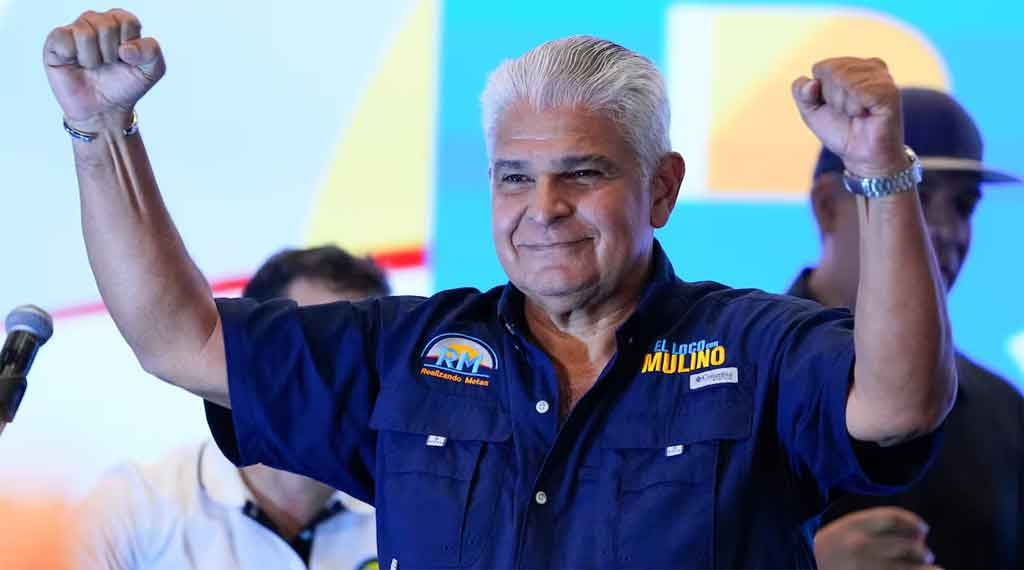
Panama City, May 6.- The new Government of Panama that José Raúl Mulino will lead as of July 1 will need to build a national development agenda with a fractured parliament and its political adversaries.
For several analysts, the financial debacle of the pension program, whose reserves are depleted this year, just when he takes office, is one of those challenges, to which is added the restructuring of social security in administrative matters and health care.
On the other hand, the new Executive must address the current economic crisis expressed in the fall in the growth rate of the Gross Domestic Product (GDP), which is expected to be around 2.5 percent this year compared to 7.3 percent. 2023, to which is added a public debt that is close to 50 billion dollars.
This decline, according to reports from the Ministry of Economy and Finance, responds to the consequences of Covid-19 and its management, with an economy and employment that have not fully recovered after the 17.9 percent drop in GDP in the 2020, and the water crisis in the interoceanic canal that will reduce the income of the road and its contributions to the State.
Also at the closure at the end of 2023 of Minera Panamá, a subsidiary of the Canadian First Quantum and whose activity represents 5.0 percent of the domestic economy, after the concession contract was declared unconstitutional by the Supreme Court of Justice, after intense popular protests that paralyzed the country last October and November.
It is also necessary, in the opinion of economists, to recover the investment grade in the face of risk rating agencies such as Fitch Ratings, which will require a commitment to austerity in government spending, which clashes with some of Mulino's campaign promises with works such as the Panama-David train and the construction of the fourth bridge over the Canal, in addition to the extension of the metro line, all of them drivers of job creation, according to him.
In his first speech to celebrate the victory at the polls, the day before, Mulino asked Panamanians to have confidence that solutions will begin very soon through efforts he will make with national and international private companies to move the dynamo of the economy, he indicated.
Another of the tasks that must show the ability to negotiate with the deputies in case the groups for which it was nominated (Realizing Goals and Alliance) do not achieve a majority, will consist of submitting for discussion a law that empowers the Panama Canal Authority to delimit the basin and build a new freshwater reservoir in the Indio River sector, critical for the operation of the interoceanic highway that this year the El Niño phenomenon forced to reduce the number of transits.
Other challenges are associated with the social and economic impact of a growing irregular migration that Panama faces with the passage of thousands of walkers through the Darién jungle, border with Colombia, heading to the United States, without effective collaboration being achieved with sending countries. transit and destination.
The day before in the general elections, with more than 90 percent of the vote, Mulino obtained 34.4 percent of the votes, compared to 25 percent for Ricardo Lombana, of the Otro Camino Movement; 16 percent of former president Martín Torrijos (2004-2009), of the Popular Party; and the 11.2 percent achieved by Rómulo Roux, from Cambio Democrático and the Panameñista party, his closest rivals in that race.
All of them recognized defeat, the last of them Lombana, who ran as the great candidate against corruption, attributed to the figure of former president Ricardo Martinelli (2009-2014), disqualified by a sentence of more than 10 years in prison for money laundering. of money and asylum in the Nicaraguan embassy, ??and by extension to his substitute Mulino. (Text and photo: PL)